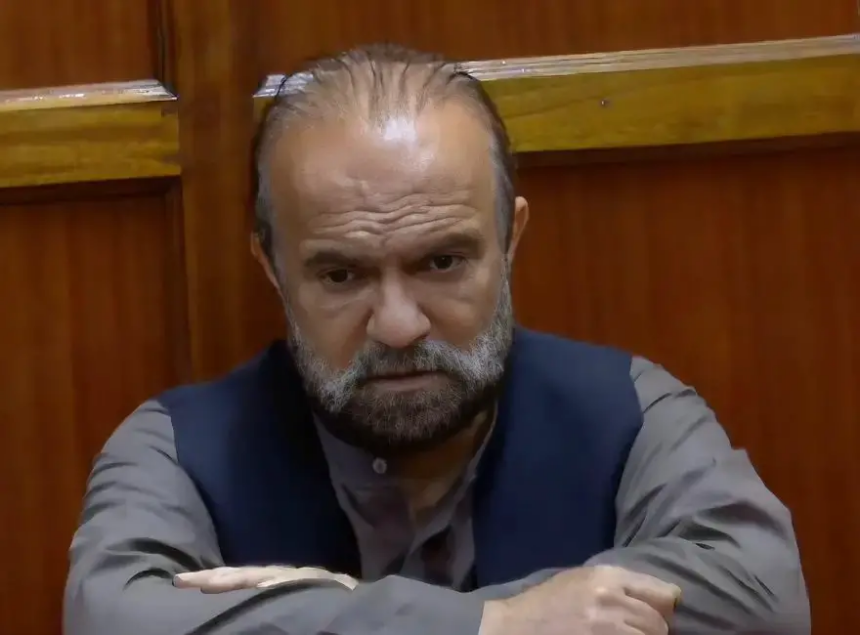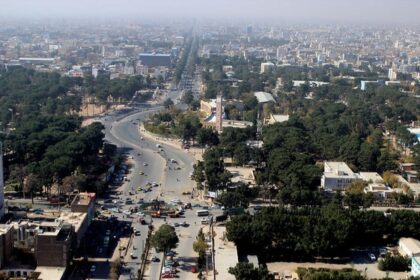RASC News Agency: Zahir Qadir, a former member of Afghanistan’s National Assembly and an outspoken political figure, was arrested on April 14 in Nairobi, Kenya. Kenyan authorities have stated that the arrest was executed in response to an official extradition request by the United States, which has accused him of illegal arms possession and involvement in narcotics trafficking. According to reports, the Kenyan judiciary has initiated proceedings to assess the validity of the extradition request, and indications suggest that the Kenyan government may be inclined to comply. However, this case has sparked serious concern among legal experts and human rights advocates who view the arrest and potential extradition as fraught with legal irregularities, political undertones, and violations of international legal norms.
1. Questionable Jurisdiction and the Erosion of Legal Principles
Kenya’s exercise of criminal jurisdiction over Zahir Qadir presents multiple legal inconsistencies when examined through the lens of international criminal law. Under customary and treaty-based legal frameworks, a state may only assert criminal jurisdiction over a foreign national under narrowly defined conditions: Territorial Jurisdiction: The alleged crime must have been committed within the geographical boundaries of the arresting state. Protective Jurisdiction: The crime must directly endanger the arresting state’s fundamental interests or national security. Nationality Jurisdiction: The individual in question must be a citizen of the arresting state.
Universal Jurisdiction: Reserved for universally condemned crimes such as genocide, war crimes, crimes against humanity, piracy, or torture offenses so grave that any state may prosecute the perpetrator regardless of where the act occurred. The charges leveled against Mr. Qadir namely, arms possession and drug trafficking do not fall within the scope of universal jurisdiction. Nor is there credible evidence to suggest that these alleged offenses were committed on Kenyan soil or that they directly harmed Kenyan national interests. As such, Kenya appears to lack a legitimate jurisdictional basis to arrest or prosecute Mr. Qadir under international legal standards.
This arrest, carried out without concrete territorial or personal jurisdiction, constitutes a potential violation of Kenya’s constitutional safeguards and the core principles of international criminal law. Moreover, it risks undermining the principle of legality, which mandates that criminal prosecution must be based on previously established law and jurisdiction. In the broader context of international human rights law, arbitrary arrest and detention are prohibited. Individuals who are unlawfully detained have the right to petition the United Nations Human Rights Committee, provided their country of citizenship or residence recognizes the committee’s jurisdiction. Unfortunately, neither the government of Afghanistan nor that of Kenya has ratified the necessary optional protocol to enable such recourse, thereby leaving Mr. Qadir without access to this essential legal safeguard. Nonetheless, the action may still constitute a breach of customary international law and other universally accepted legal principles.
2. Politicized Extradition and Breach of Treaty Obligations
The potential extradition of Mr. Qadir to the United States is governed by the 1931 Extradition Treaty between Kenya and the United States. This treaty outlines strict conditions under which extradition may be carried out:
Non-Pending Prosecution (Article 4): The individual must not be undergoing prosecution in the arresting state. Political Offenses Exemption (Article 6): Extradition is impermissible if the alleged offense is of a political nature or if the prosecution is politically motivated. Sufficiency of Evidence (Article 9): The requesting state must submit substantial and credible evidence to justify the charges. Mandatory Release Clause (Article 11): If sufficient documentation is not provided within two months of arrest, the detaining state is legally obligated to release the individual.
There are serious concerns that the charges against Mr. Qadir may be politically motivated rather than purely judicial in nature. As a former legislator and well-known critic of U.S. policy in Afghanistan, Qadir’s history of vocal opposition to American involvement in the region raises questions about whether this extradition request is being used as a punitive tool to silence political dissent. If proven, this would render the extradition not only unlawful under the 1931 treaty but also in violation of international principles protecting political expression. Qadir’s legal defense team must therefore focus on demonstrating that the extradition request is politically motivated and lacks sufficient evidentiary backing. Should they succeed in doing so, Kenya would be legally obligated under both the extradition treaty and broader international law to refuse the request and release Mr. Qadir.
3. Geopolitical Implications and the Weaponization of International Law
Beyond the legal technicalities, the arrest and potential extradition of Zahir Qadir carry significant geopolitical implications. The case reflects a troubling trend in which powerful states may exploit international legal frameworks to pursue political opponents across borders under the guise of criminal prosecution. This undermines the foundational principle of international law: that justice must be blind to politics and governed strictly by legal norms, not diplomatic convenience. If Kenya proceeds with the extradition despite the questionable legal basis and strong indicators of political motivation, it risks compromising its judicial independence and eroding public confidence in the rule of law. Moreover, it may embolden other nations to follow suit, using bilateral treaties as instruments of political persecution rather than tools of legitimate transnational justice.
As this controversial case unfolds, it will be closely watched by legal scholars, human rights defenders, and international legal institutions. The outcome will likely serve as a precedent either reinforcing the primacy of legal standards or revealing the susceptibility of global justice systems to geopolitical manipulation.
By Abdul Mubin Naderi – PhD Candidate in International Law, University of Tehran






